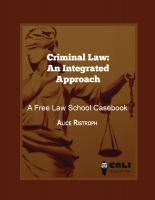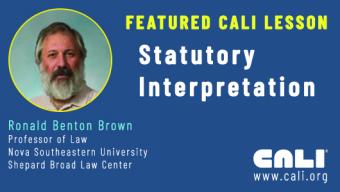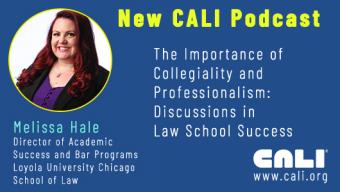New CALI Lesson - Got a Question? Tips on How to Talk to Your Professors
In this lesson, we will discuss best practices to follow when deciding whether to approach a professor with a question. Also, we will cover some valuable tips that will help you get the most out of your meeting. The goal of this lesson is to help you make your interactions with faculty positive and valuable experiences.








